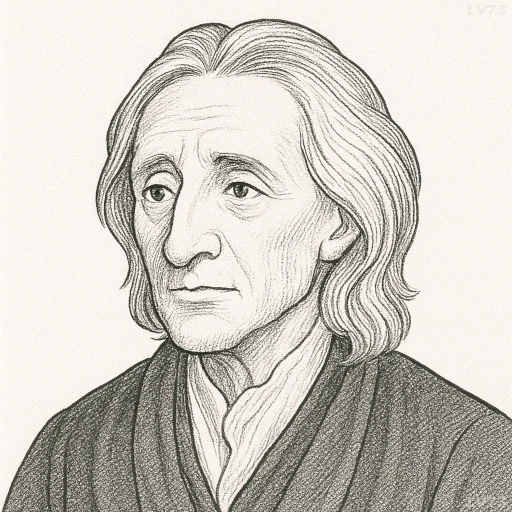“To love our neighbor as ourselves is such a truth for regulating human society, that by that alone one might determine all the cases in social morality.”

- August 29, 1632 – October 28, 1704
- Born in England (UK)
- Philosopher and political thinker
table of contents
Quote
“To love our neighbor as ourselves is such a truth for regulating human society, that by that alone one might determine all the cases in social morality.”
Explanation
In this quote, John Locke underscores the fundamental principle of benevolence and reciprocity in human society. By advocating for the idea of loving one’s neighbor as oneself, Locke emphasizes the universality and simplicity of this moral command. It is a principle that, if universally applied, could guide individuals in their interactions, resolving ethical dilemmas and ensuring just behavior toward others. For Locke, the moral fabric of society depends on individuals treating others with the same respect, compassion, and consideration that they expect for themselves. This principle serves as a clear guide for ethical decision-making, especially in situations where social morality is at stake.
Locke’s philosophy emerged during a time of religious and political strife, particularly in the aftermath of the English Civil War. He believed in the importance of social harmony and the role of reason in resolving disputes. Locke’s view of morality was not necessarily tied to religious doctrines but was based on the idea that humans, as rational beings, could use reason to guide their actions in a way that would promote the common good. The concept of loving one’s neighbor is deeply aligned with Locke’s commitment to natural law—a system of moral principles accessible through human reason. By advocating for this, Locke suggests that morality does not require complicated rules but can be simplified through an understanding of mutual respect and fairness.
In modern times, Locke’s principle continues to inform discussions about human rights, justice, and ethical behavior in society. For example, this idea is central to discussions about equality, where social policies often emphasize treating others with dignity and fairness, regardless of differences in race, gender, or economic status. In everyday life, Locke’s maxim resonates in various social movements that call for empathy, compassion, and the recognition of others’ humanity. Whether in international diplomacy, business ethics, or community-building, Locke’s notion of loving one’s neighbor as oneself offers a timeless and universal moral framework for navigating the complexities of modern society.
Would you like to share your impressions or related stories about this quote in the comments section?




